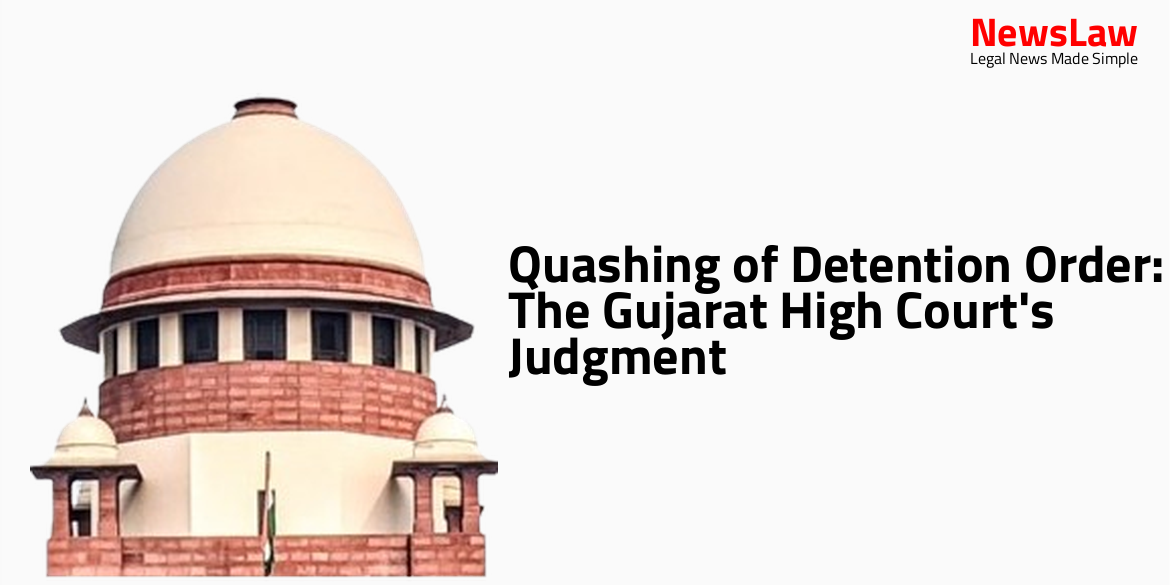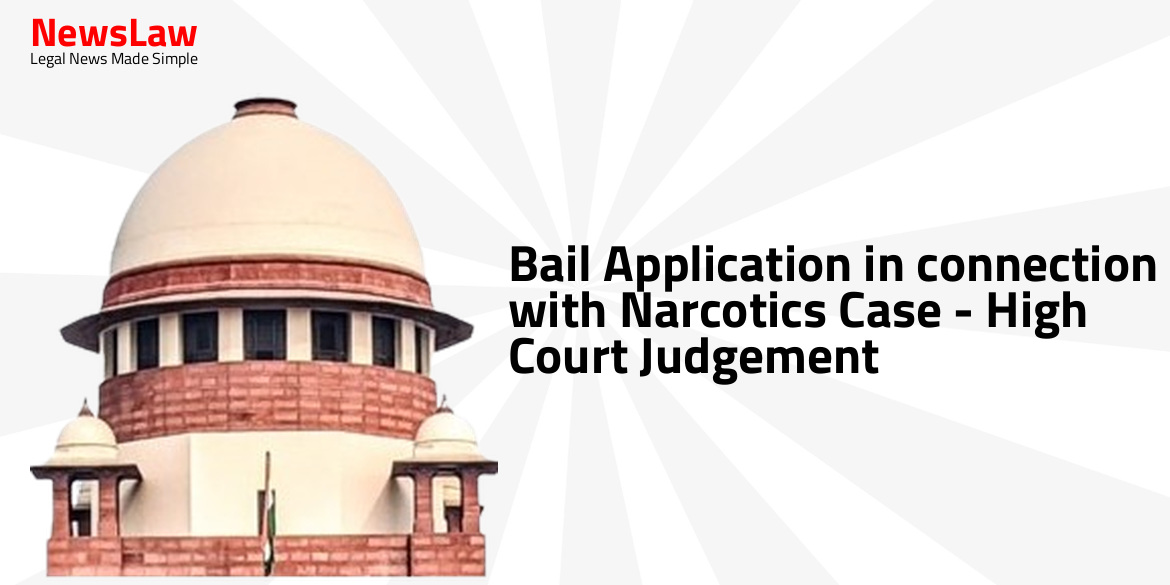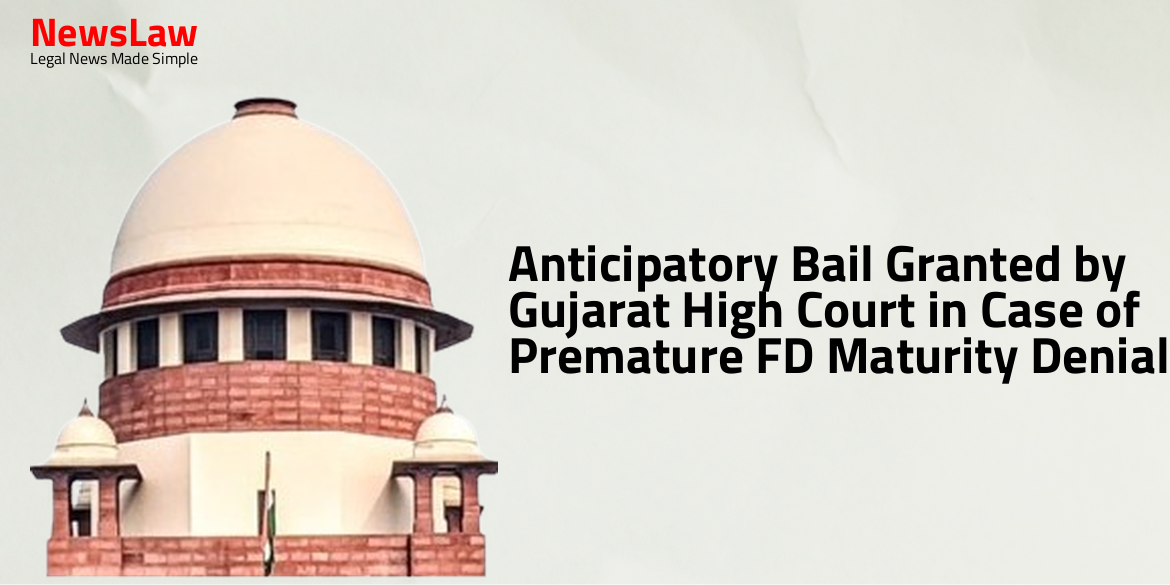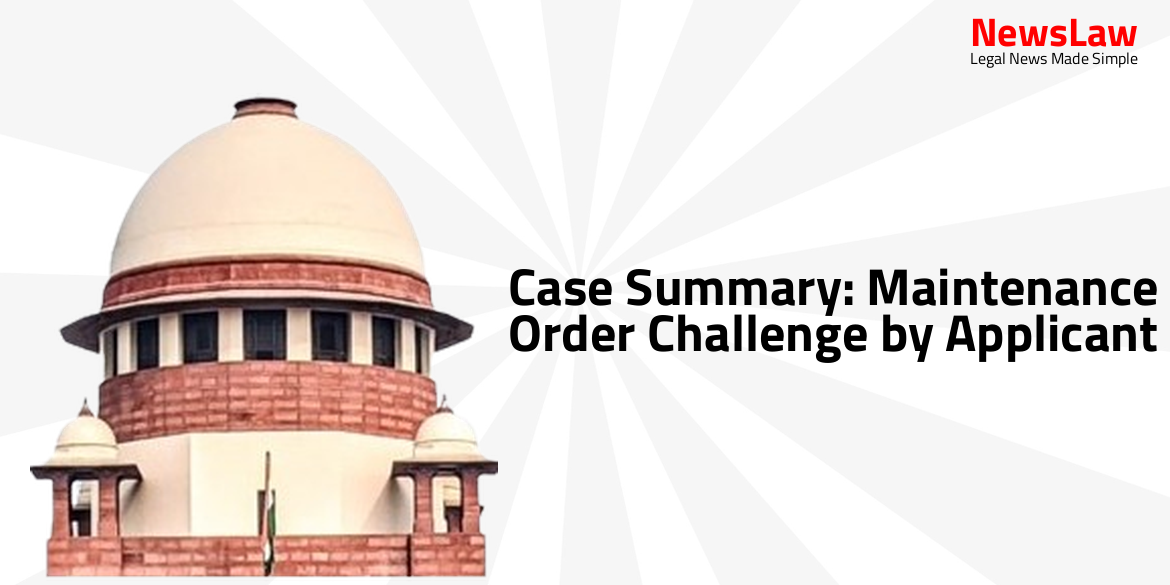In a recent landmark judgment, the Gujarat High Court ruled on the quashing of a detention order under the Gujarat Prevention of Anti-Social Activities Act. The court examined the grounds for detention laid out by the detaining authority and found them to be insufficient. The petitioner challenged the order, leading to this crucial decision by the court. This case sheds light on the legal intricacies surrounding preventive detention and its application. Stay informed with this detailed analysis of the Gujarat High Court’s judgment.
Facts
- Present petition is against the order of detention dated 06.01.2024 passed by the detaining authority under the Gujarat Prevention of Anti-Social Activities Act, 1985.
- Detaining authority has detained the detenue under Section 3(1) of the Act.
Arguments
- Petitioner’s advocate argues that the detention order should be quashed as it was based solely on the registration of two FIRs.
- The FIRs were for various offenses under the Indian Penal Code and the Gujarat Police Act.
- The advocate contends that these offenses do not fall within the definition of Section 2(c) of the Act.
- The argument is that the grounds for detention are not sufficient to justify the petitioner’s detention.
- The Learned APP for the respondent-State has supported the detention order passed by the detaining authority.
- The APP submitted that sufficient materials and evidences were found during the investigation, indicating the detenue’s habitual activities as defined under Section 2(c) of the Act.
- The detaining authority has rightly passed the order of detention based on the facts of the case.
- The APP argued that the detenue’s activities deserve the upheld detention by the Court.
Analysis
- Preventive detention is detaining a person without trial to prevent them from committing certain offenses.
- Preventive detention should not be a substitute for ordinary law or absolve investigating authorities from their duties.
- Preventive detention is typically for a year and should not be used to keep a person in perpetual custody without trial.
- The State has remedies other than preventive detention if a person is considered a menace to society, such as seeking bail cancellation or moving an appeal to a higher court.
- The routine and unjustified use of Preventive Detention Law in Telangana was noted in a recent court decision.
- To justify preventive detention, there must be evidence that the person poses a threat to society and disrupts public order.
- The case should be scrutinized carefully if preventive detention is based on the same charges as those to be tried in criminal court.
- The order in question did not mention any application for the cancellation of bail filed by state authorities.
- The powers of preventive detention are exceptional and draconian with strict constitutional safeguards against abuse.
- The Constitution’s Article 22 ensures that preventive detention powers do not devolve into arbitrary state authority.
- Recent cases have shown a pattern of misusing preventive detention powers by detaining authorities.
- The distinction between disturbance to ‘law and order’ and ‘public order’ is crucial and has been clarified in various court judgments.
- A mere disturbance of law and order is not sufficient for preventive detention; only disturbances affecting public order warrant such action.
- The personal liberty of an individual is a precious right protected under the Constitution and must only be curtailed when extremely necessary for public order concerns.
- Acts affecting public order differ from those affecting law and order, with the former requiring broader societal impact.
- The use of preventive detention laws should be warranted only when ordinary criminal laws are insufficient as a deterrent.
- The threshold for disturbance to public order is high, requiring impact on the community at large.
- Not every act of assault or disturbance leads to public disorder; specific criteria must be met for preventive detention to be justified.
- Registration of FIR alone does not indicate breach of public order
- Detaining authority must show detention complies with established law procedures
- Personal liberty under Article 21 is highly valued and protected
- Article 22 is an exception to Article 21 and applies only in rare cases
Decision
- The petitioner, the detenue, is ordered to be set at liberty forthwith if not required in any other case.
- The rule is made absolute to the extent mentioned.
- The present petition is allowed.
- The impugned order of detention dated 06.01.2024 is quashed and set aside.
Case Title: NIKI @JINAKA @NIKHIL S/O AMAR YADAV Vs. STATE OF GUJARAT
Case Number: R/SCA/3553/2024



